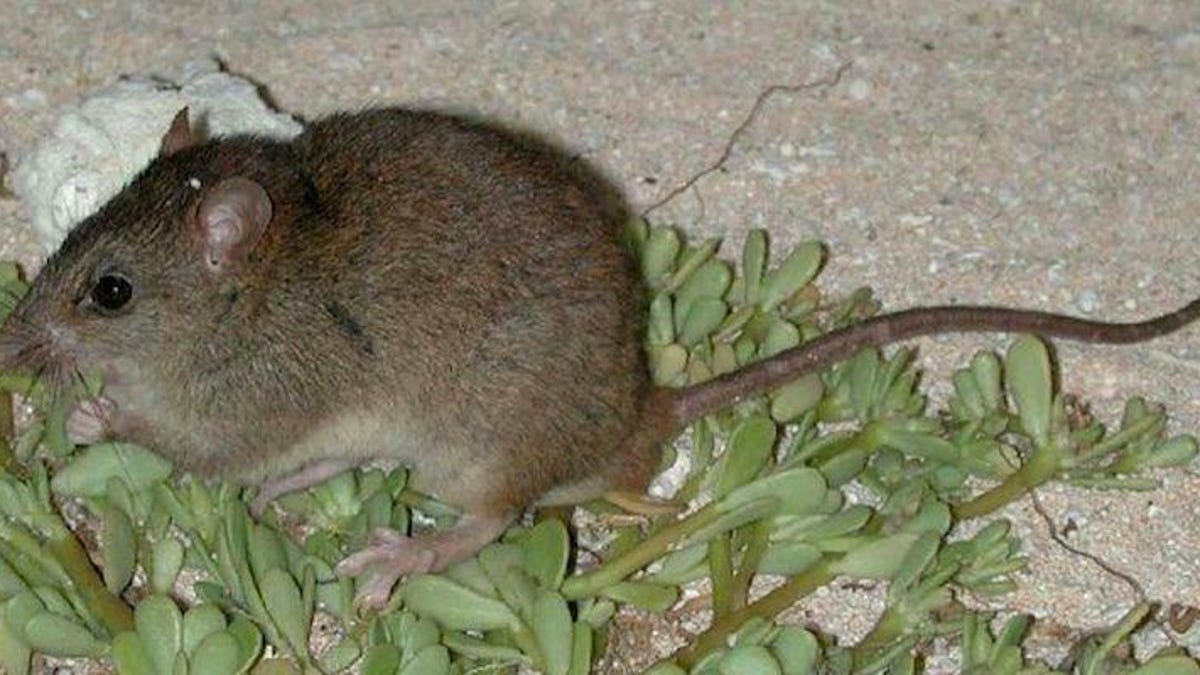Climate change officially kills off its first mammal species
The Bramble Cay melomys doesn't look like much, but it's become the first mammal to go extinct because of human-caused climate change.

The Bramble Cay melomys is an unassuming rodent, but it has now been declared extinct.
Climate change is now officially sending animals extinct.
The Bramble Cay melomys, a rodent found on a tiny island off Australia's far north coast and the only mammal native to the Great Barrier Reef, was this week added to a list of animals declared extinct by the Australian government. According to scientists, the mammal extinction is the first of its kind to be caused by human-induced climate change.
Australia's Minister for the Environment Melissa Price quietly declared the extinction in a note on threatened species released by her office on Monday and reported in the Sydney Morning Herald.
While the mammal didn't get a mention in the Minister's media release, it was included in a listing of species at the bottom, with the Department of the Environment and Energy recommending it for "transfer from the Endangered Category to the Extinct Category."
In a statement to CNET, Minister Price said the findings were "incredibly disappointing" but there was "no reasonable doubt" about the extinction of the species.
"It has been known among scientific and environmental communities for some time that the melomys was likely extinct," the Minister said. "Being confined to a single, very small and isolated location, the Bramble Cay melomys was particularly susceptible to a wide range of threats. Available evidence indicates that frequent and intense weather events during the decade 2004 to 2014 produced damaging storm surges and extreme high water levels, which were likely significant contributors."
Scientists have been warning about the fate of the mammal for years, with the last known sighting recorded in 2009 and a 2014 survey finding no remaining trace of the species.
In a 2016 research paper on that survey, scientists said "climate change-induced sea-level rise" was one of the factors behind the extinction, concluding the rodent was "the first mammal to go extinct due to human-induced climate change."
It’s not a big, iconic or ‘sexy’ species and it won’t get much coverage in the media but this is important. The Bramble Cay melomys is now extinct ... the first mammal to be declared extinct due to human-caused climate change. Don’t let this go unnoticed.https://t.co/9XppUNWe8A pic.twitter.com/5hpN5nbv4F
— Prof Ben Garrod (@Ben_garrod) February 19, 2019
While the Bramble Cay melomys might not be the most distinctive creature, the extinction is significant and occurs in an area already feeling the devastating effects of climate change.
The waters off Australia's northern coast and across the Pacific are warming and rising, leading to unprecedented coral bleaching events across the Great Barrier Reef and even forcing Pacific Island nations to prepare contingency plans for climate migration as people are displaced by rising waters.
Update, Feb. 19 at 8:20 p.m.: Adds comment from Minister for the Environment Melissa Price.

